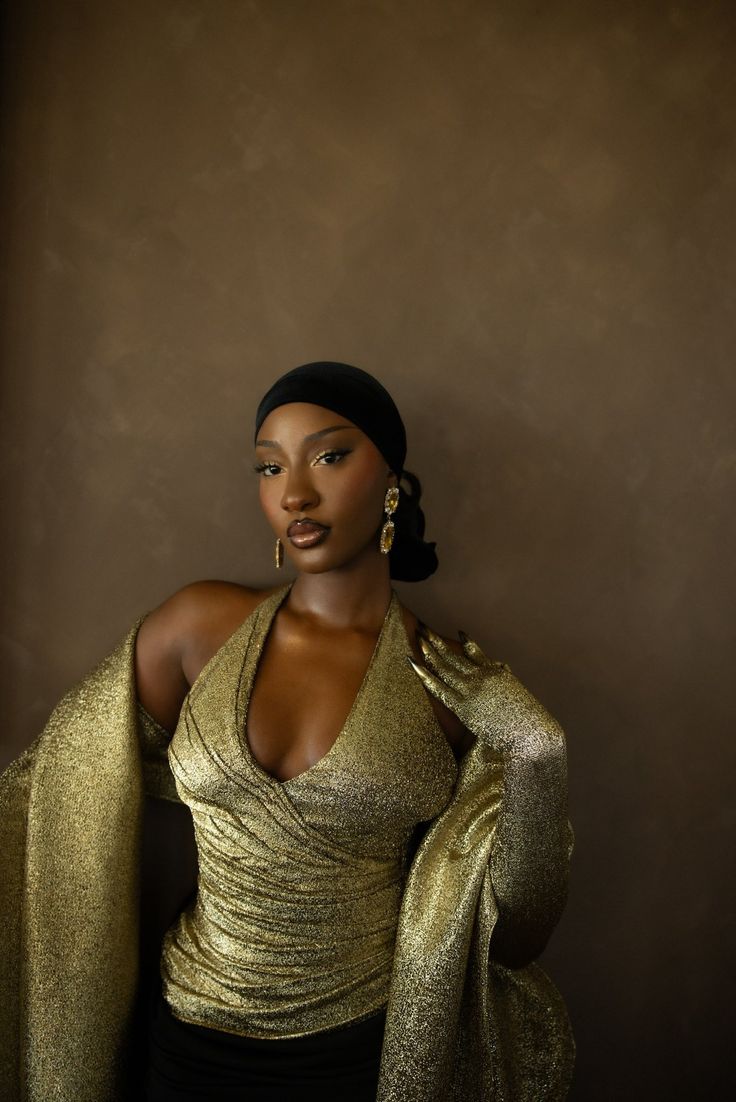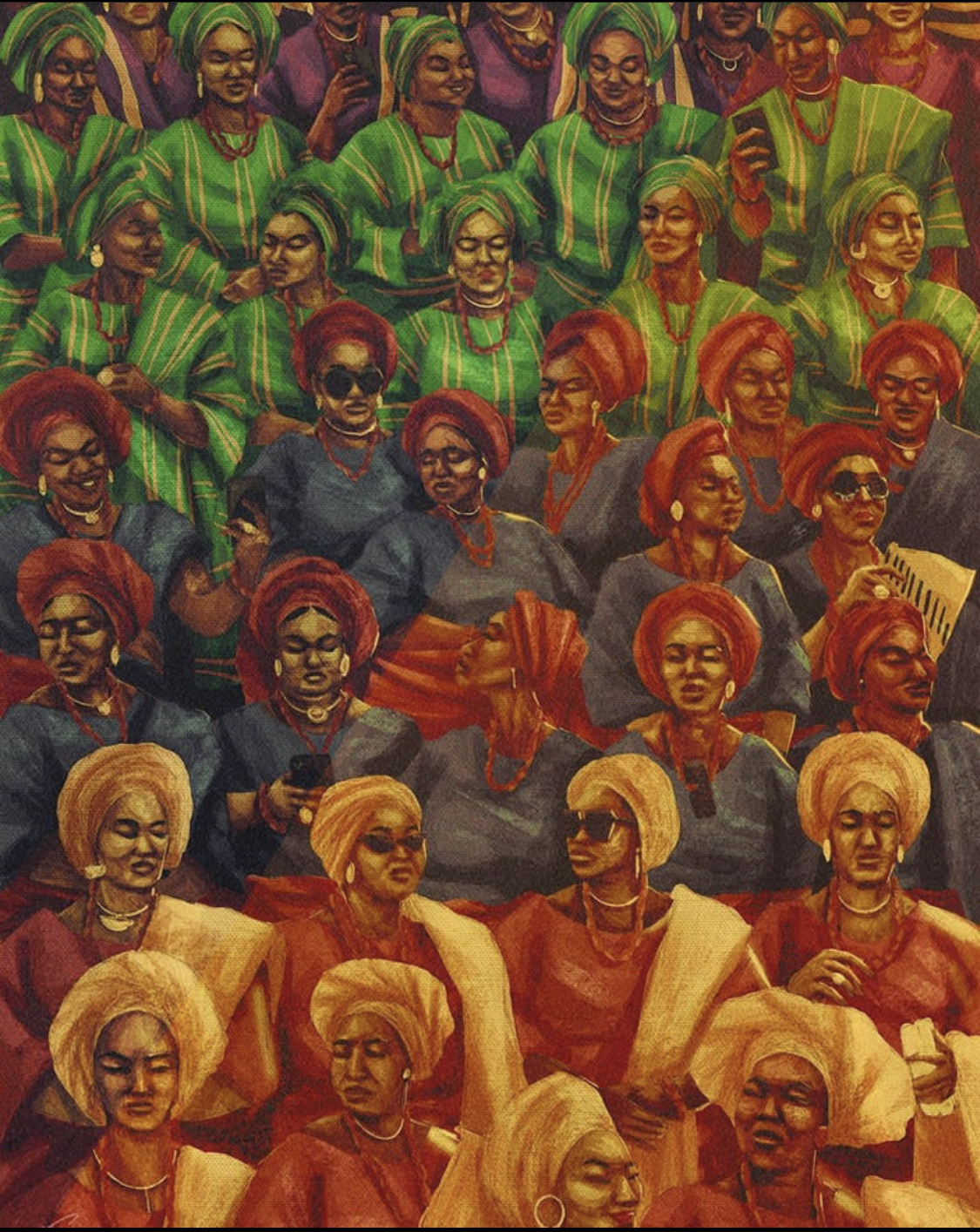Yemi Alade is a member of the Abia State Nigeria diaspora, and a multifaceted individual. She is also not the reality of the consistently glamorous person on a magazine covers. Resilience and determination frame her constancy. Very few women can tell the story of one who breaks traditions with a voice full of rich demands. She has the passion that has catapulted her into a global phenomenon and a fierce belief in her sound that resonates with many.
You probably know her song, “Johnny.” Everyone does. “Johnny” was a grenade. It blew the doors open in 2014, but it also cast a shadow that Alade has been walking out of for the past decade. Everyone has been wanting another “Johnny.” Alade has been wanting to be herself.

The Foundation: A House Built on Education and Loss
Before the bright lights, childhood was shaped by education, and by loss, and everything that follows with it. Yemi was born in 1989 in Abia State, but 1989 Lagos was the center of everything Nigeria. Her father, James Alade, was a police commissioner. He was a man of discipline and order. Yemi’s mother, Helen, was a businesswoman and a trader. The structured world of public service and the vibrant, unpredictable world of commerce, with both parents in the civil service and as a businesswoman, gave Yemi a unique perspective of the world.
It was the other way in the Alade household. James Alade was a big believer in education, as big as it gets. To the point that everything rest, everything was a distraction. Music? A mere hobby. Yemi and her siblings were expected, and they sure as hell, delivered. She went to Victory Grammar School in Lagos, and after that to University of Lagos to study Geography. She was brilliant, and it was the education that her father wanted.
Yemi’s world fell apart when she was just 15. She lost her father. Losing him altered her family’s universe. The foundation of the family’s order and discipline was gone. Along with her children, her mother, Helen, also lost her partner. The family’s financial situation was also changing, and along with it, the childhood certainties and order found in a father’s presence.
In the family’s grief and the childhood sheltering order gone, music as a pastime switched to a refuge. Singing was the only way to express her pain and hope that otherwise remained trapped in her anguished heart. Her mother was understandably worried, as a survivor she took the only cautious and fully supportive position. Where her father would have permitted it, her mother would have again would have no reason. She had seen hardship and knew that that passion could drive a person to a disastrous level; she was trapped herself.

The Grind: Winning and Waiting
Most people think Yemi burst into prominence after winning the 2009 Peak Talent Show. The reality is far more complicated. Winning that show was not an instantaneous success; Yemi had fought long and hard just to earn a key to a locked door.
The prize on offer was a recording contract, but for a new female artist trying to break into the Nigerian music industry, and without a powerful ‘godfather’, that contract was a bleak reality. The contract could not guarantee the production of a hit song. The years after her win was a waiting game that for a large chunk of the industry consisted of silence, broken (or no) promises, and the grinding, thankless work of building a career. She was not a ‘fancy’ studio, and it was not ‘fancy’ work. She was ‘hustling’.
Yemi took the work of a backup singer. In the industry, and for a long-time facing the ‘back’, that was as ‘humble’ a position as one could take. Yet for Yemi, that was the best ‘classroom’ she could have asked for. She studied production, stage crafts and the music business like a ‘shadow’ would. She watched, listened, and learned.
During this time, she also formed a girl group named Noty. It was an attempt to find strength in numbers, but the group ultimately disbanded. This could have been another point of failure, another reason to give up. But for Yemi, every closed door seemed to fuel her determination. She was learning the hardest lesson of the entertainment industry: that talent is only the entry fee. Perseverance is the currency that buys you a stay.
She was broke, uncertain, and facing immense pressure. The pressure to get a “real job,” to use her geography degree, to choose the stable path her father would have wanted. The memory of her mother’s struggle was a constant reminder of the security she lacked. But the memory of her father’s own discipline became her own; she just applied it to a different field. She treated her music career with the same rigor he would have expected of her studies.
This period, the five long years between winning the talent show and the release of “Johnny,” was her true training ground. It stripped away any sense of entitlement and forged in her a resilience that would become her trademark. When “Johnny” finally broke through in 2014, it wasn’t a lucky break. It was the result of a woman who had been honing her craft in the shadows for years, refusing to be forgotten, ready to seize the moment she had earned through pure, unglamorous grit. The explosion wasn’t spontaneous; it was a detonation long in the making.

The Climb: Defining “Mama Africa”
This is where her real story begins. Instead of churning out “Johnny” clones, she dug deeper into the sound that made it work in the first place: Afropop. She started weaving together the rich, rhythmic textures from across the continent. She sang in English, Yoruba, Igbo, French, Swahili, and pidgin, as a genuine reflection of a Pan-African spirit.
She became “Mama Africa.”
That name isn’t just a cool stage alias. It’s a mission statement. It’s a declaration that her music, her fashion, and her message would speak for and to the entire African diaspora. Look at her videos. They’re a celebration. You see the vibrant Ankara prints, the powerful dance moves rooted in traditional styles, the landscapes that show Africa in its glorious, unfiltered beauty. She was not only making music; she was crafting a cultural movement.
Her albums—from “King of Queens” to “Mama Africa” and “Woman of Steel”—aren’t just collections of songs. They’re chapters in this manifesto. They are unapologetically African, fiercely feminine, and packed with an energy that feels both contemporary and timeless.
Tracks like “Na Gode” and “Bum Bum” aren’t just party starters. They are celebrations of joy, a rebellion against the single story of struggle often assigned to the continent. Her music says, “We are here, and we are dancing.”

The Latest Chapter: Sound and Vision
Now, let’s talk about her latest work. The song “CIA (Coming In America)” isn’t just a new single. It’s a mood. It’s confident, slick, and shows an artist completely in control of her sound. The production is polished, but the soul is purely Yemi. It’s the sound of an artist who has mastered her craft and is now playing, experimenting, and enjoying the ride.
But the music is only half the story. Yemi Alade is a visual artist. You cannot separate her music from the videos that carry it. She treats them as short films, each one a burst of color, fashion, and powerful imagery. She understands that in today’s world, you don’t just sell a song; you sell a world. And the world she’s built is one of unapologetic African excellence and beauty.

The Woman Behind the Music
So, who is she offstage? The public persona is a force, charismatic, bold, and outspoken. But the interviews reveal something else: a woman deeply thoughtful about her role. She speaks about the pressure, the constant work, and the responsibility she feels to represent her continent well. She’s not just performing; she’s advocating. She uses her platform to speak on issues she cares about, from education for girls to social justice.
Her journey hasn’t been a smooth, upward curve. It’s been a fight. A fight for creative control. A fight to be seen as more than a one-hit wonder. A fight to define “Afropop” on her own terms. And through it all, she’s remained standing, more “Woman of Steel” than ever.

Why Yemi Alade Matters
Yemi Alade’s journey is a powerful testament to the importance of artistic integrity in an era where fame often feels transient and superficial. With her infectious, viral hit, she not only captured the world’s attention but cleverly transformed that initial spark into the cornerstone of a thriving empire rather than a confining cage.
Alade exemplifies that it is entirely possible to achieve global success without compromising the authenticity of one’s identity. In fact, she has brilliantly illustrated that embracing and celebrating one’s unique cultural heritage can become a compelling source of international appeal. Rather than simply crossing over into mainstream success, she has skillfully invited the world into her vibrant universe, showcasing the beauty and richness of her roots.
In a world that often tries to put African artists in a box, Yemi Alade broke the box, recycled the pieces, and turned them into a crown. She is the definition of unstoppable. And the best part? She’s still writing her story. The latest song is just the next page. You get the feeling that for Yemi Alade, the biggest anthems are still ahead. And the world is finally learning to listen.






